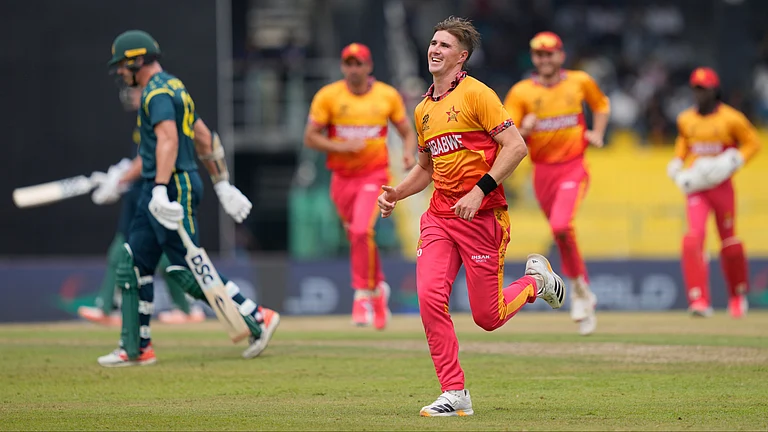After the Municipal Corporation of Delhi (MCD House) was on Monday adjourned without electing Mayor and Deputy Mayor of Delhi, the Aam Aadmi Party (AAP) said it would approach the Supreme Court for a court-monitored mayoral elections.
The MCD House was on Monday adjourned for the third time in a month without electing Mayor and Deputy Mayor of Delhi. The rules say that the mayor is to elected in the first session of the MCD House after elections.
The MCD House was adjourned on Monday after a ruckus erupted over the nominated members being allowed to vote in mayoral elections.
Soon after the Municipal Corporation of Delhi (MCD) House assembled around 11:30 am, after a delay of half an hour, Presiding Officer Satya Sharma announced that aldermen will be allowed to vote in elections to the posts of mayor, deputy mayor, and Standing Committee members which will be held simultaneously. This drew protests from AAP councillors. Party leader Mukesh Goel said aldermen can't vote.
After emerging from the House, AAP leader Atishi told reporters, "We will go to the Supreme Court and we will go today itself so that the mayoral elections can be held in a court-monitored manner."
Earlier on January 24, a ruckus between the Aam Aadmi Party (AAP) and Bharatiya Janata Party (BJP) members led to the adjournment of the house. Before that, on January 6, the MCD House was adjourned because of a similar ruckus.
The MCD elections were held on December 4 and results came out on December 7. The AAP emerged as a winner in MCD polls with 134 of the total 250 seats. The BJP won 104 and the Congress won nine seats.
Shelly Oberoi and Ashu Thakur are the AAP's contenders for the post of mayor. The BJP has nominated Rekha Gupta.
The nominees for the post of deputy mayor are Aaley Mohammad Iqbal and Jalaj Kumar (AAP) and Kamal Bagri (BJP).
Besides the mayor and the deputy mayor, six members of the MCD's standing committee are also slated to be elected during the municipal House.
The post of mayor in Delhi sees five single-year terms on a rotation basis, with the first year being reserved for women, second for the open category, third for the reserved category, and the remaining two also being for the open category.
(With PTI inputs)


























